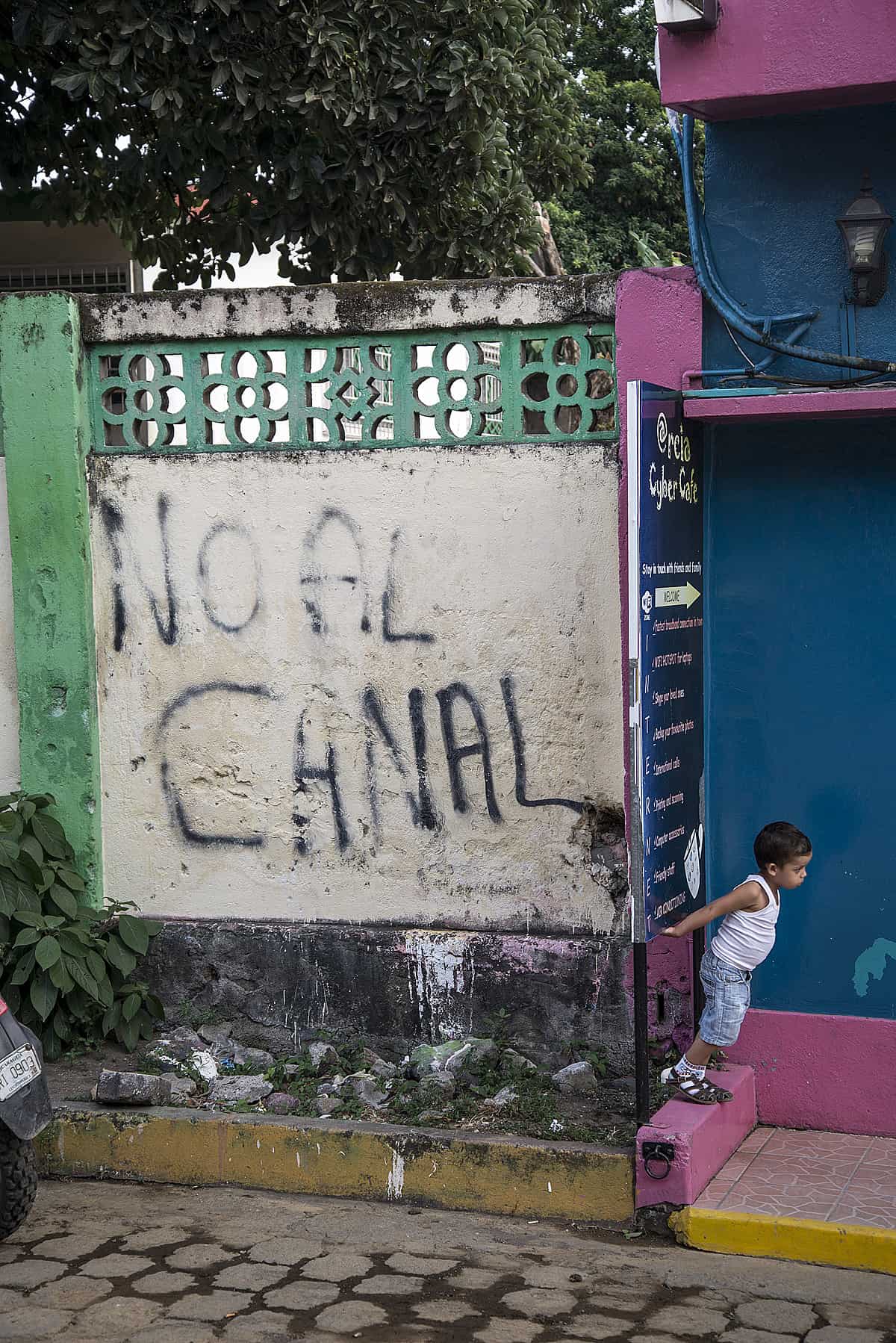Under the gaze of government officials and masked policemen, Nicaraguan indigenous and Afro-Caribbean leaders say they were coerced into signing a document Sunday regarding the planned $50 billion Nicaragua Canal project that would pass through their autonomous territory.
“They were intimidated in there so they felt that they had to sign,” Santiago Thomas, a Rama indigenous leader, said of those who signed the document. “They felt like they didn’t have a choice and were under pressure with the police around.”
The signing came after three days of unplanned meetings on Jan. 8-10 between canal officials and community leaders from the Rama-Kriol Territorial Government (GTR-K) – the governing body for the six indigenous Rama and three Afro-Caribbean Kriol communities in Nicaragua’s Caribbean region. GTR-K leaders say they were first pressured to sign a contract consenting to the canal’s construction on their territory. After the GTR-K declined to sign, canal officials presented the community leaders with a second document, which, according to canal officials, laid out terms for future negotiations regarding the canal.
Six of the nine community leaders signed, but told the Nicaraguan press on Tuesday that they cannot be sure what they agreed to because they were not allowed to review the document. In response to the incident, the GTR-K released a statement Sunday, denouncing intimidation tactics by canal officials.
The GTR-K’s complaints are typical of the negotiations surrounding the canal project, which has been saddled with scandals from the beginning. Nicaragua’s legislature unilaterally granted the 50-year renewable canal concession to Chinese billionaire Wang Jing’s HKND Group in 2013 without any public consultations and before completing any feasibility studies. The government and HKND say they will push forward with canal construction at the end of 2016, despite viability concerns raised in the Environmental and Social Impact Assessment (ESIA), as well as the sudden decline of Wang’s fortune due to fluctuations in the Chinese stock market.
The canal concession granted HKND the right to expropriate land anywhere in Nicaragua, and the planned route would displace between 29,000 and 60,000 people. Unlike the other towns and farms that would be affected by the canal, the Rama-Kriol territory is protected by law. For the canal to pass through these lands legally, the government must obtain “free, prior and informed” consent from the GTR-K.
Despite this law, the Rama and Kriol say that they were not allowed legal assistance during their most recent meetings regarding the canal. They were also denied time to review the full results of the ESIA, which were completed in the middle of last year.
Lawyers representing the communities filed a complaint with the Inter-American Court of Human Rights in June 2014 in response to the alleged entry of canal officials into Rama/Kriol territory. According to Thomas, some members of the GTR-K are considering filing another complaint following the weekend’s meetings.
“Human rights have been violated,” Thomas said. “We are not going to allow our people to be taken down this way.”






